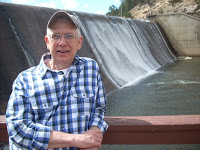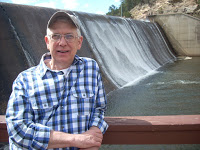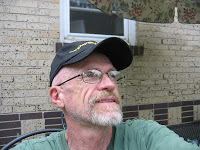Sometimes we actually search for the truth. Sometimes we think we have found it. Sometimes we are sure it is eluding us. Sometimes we may confess we know nothing of the truth.
I’m sure I went to college to find out the truth. After working a few years, I went on to graduate school because I needed a change in my career. I went on to graduate seminary because in graduate school I discovered I’d rather work in churches than teach in a college. Churches provided greater opportunity for variety. That’s the truth; I valued variety over depth. Still, I got to teach, to study, to use professional time for research, to write, to make music, to encourage people. I was not interested to present any capital T Truth in sermons that people would try hard to believe. Rather, I sought to challenge people in their own best interest to think, to consider, and to commit themselves to a way of life guided by the wisdom of the ages as understood through a modern take on the worlds of reality and belief. To me that seemed close enough to the truth.
My take on ethics and morality was somehow personal and took into view the wisdom of my teachers beginning with the Bible, a positive view of the human body, an appreciation of diversity in human experience and values, a commitment to democracy, and a fascination with new ideas and consequences. The truth is that my commitments suited my ministry but did not make me an especially successful minister. Luckily, I got to work in larger congregations where I could pursue my greater interests.
So now some non-truth sermonic thoughts:
The Bible has no word for “The Truth.” It does like when people are “true”, but that has to do with how they act toward other people, not their adherence to some kind of doctrine. There are two important concepts, though, that have to be accounted for. First is a metaphor, “the word of God”, second an expression, “the apostolic tradition”. The word of God is the common religious territory of Jewish and Christian concern. It was spoken and eventually written. The writings were in Hebrew (gathered over several hundred years), Koine Greek (telling stories and advice that originated in Aramaic of the first century Common Era) and hopefully all retranslated into many newer languages by reliable witnesses. Christianity, in response to the demands of the non-Christian Emperor Constantine had to agree on their beliefs so they could be certified by the Roman Empire. Writing a creed had some benefit; it stopped some of the persecution from the outside. Sadly it also created the ability for Christians to begin persecuting one another over doctrinal matters, a practice that has not subsided since the third century Common Era. In all, orthodoxy has become a sad song for the church to sing. All the beautiful chants and motets, cantatas and oratorios, organs in chapels, churches, and cathedrals, all the sacred classical and popular instruments of Christians across the world over cannot create enough beauty to atone for the evil Christians have wreaked upon themselves and too often upon the rest of the world. And that’s the truth, but not the only truth.
Of course religions also create a lot of love, benevolence, and community as their members emulate the loving acts of the divine, when they live into the spirit rather than the law of their order. That also is the truth in the view of this sometime preacher. I choose to operate these days as a Christian, no matter what any other Christian may think of my life, behaviors, and beliefs. I chose to follow the simple-to-say although difficult-to-live ethic of Jesus, my religious teacher, who said: “Act toward others as you would have them act toward you. Love your enemies. Do good to those who would despitefully use you. Turn the other cheek. Forgive as you would like to be forgiven. As you have acted towards the simplest, neediest, helpless, unimportant, or despicable people, you have done it to me.” This kind of dynamism could change the world, but so far it has not done so. Few enough have even tried to follow such wisdom. And that’s the truth.
And this is the end of my little preach. Amen.
© 23 April 2018
About the Author
Phillip Hoyle lives in Denver and spends his time writing, painting, and socializing. In general he keeps busy with groups of writers and artists. Following thirty-two years in church work and fifteen in a therapeutic massage practice, he now focuses on creating beauty. He volunteers at The Center leading the SAGE program “Telling Your Story.”
He also blogs at artandmorebyphilhoyle.blogspot.com


